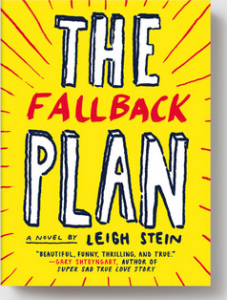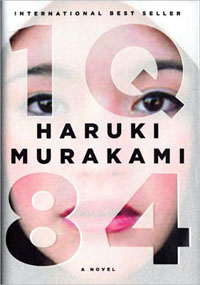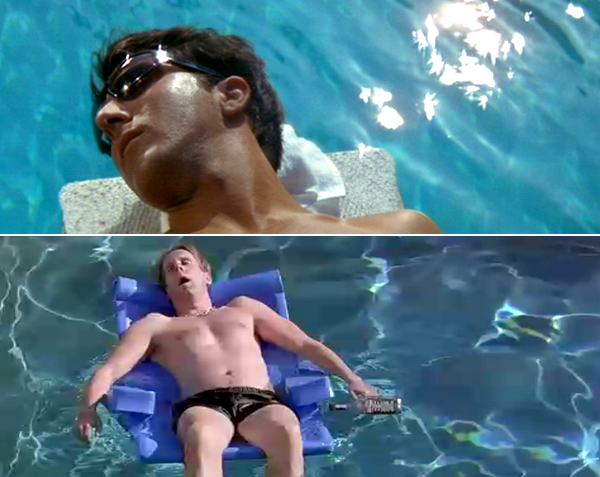Black Jack Johnson NYC, R-O-C-K-I-N-G.

The title of this post consists of lyrics from one of my favorite Mos Def songs, on his album The New Danger. Many of the tracks on this album are about Jack Johnson, the first ever black heavyweight boxing champion. I could listen to it all day. And it’s in my head this fine Sunday morning because I’ve been catching up on Dexter Season 6, in which Mos Def, I mean Mos, I mean Yasiin Bey, plays Brother Sam, a born again murderer who Dex befriends. I am on episode 4, and I already love this character. I was curious, so I Googled Mr. Bey and I found a great clip from The Colbert Report in which Mr. Bey graciously gives no explanation as to why he changed his name, and from which I learned that Black Star has a new record. READ MORE >
Fund Mark Baumer’s 50 Books in 1 Year
The first and only Kickstarter I’ll probably ever pledge to fund:
MIDTOWN SKIN ESSAY 4: JOB MARKET

LinkedIn is a tower of screaming youth. New York City is a LinkedIn multiprojection, on a perfect black wall. It’s a failure. Investment bankers point and laugh and forget the time they showed up for their first day of work.
Leigh Stein Interview (5)
 Leigh Stein’s yellow first novel, The Fallback Plan, is about a girl named Esther who has a degree in acting but has just been coasting since graduation, trying to adjust to a newer, sadder understanding of how the world works. “It was unfair that life was so irrevocable, that nothing could be frozen in time or retracted” she thinks in the final chapter called, appropriately, “Independence Day.” “I loved acting because it was like living inside of a fixed amount of time, looped from start to finish. In rehearsal, I went through the best and worst moments of some woman’s life, again and again, until I’d perfected them.” Now, feeling like a stranger in her parents’ backyard, she sits in the distance and watches the lives of the people around her and it seems like she resolves, at last, to take the long way through her own life. I asked Leigh about that for my last question in this week-long interview (see parts one, two, three and four). READ MORE >
Leigh Stein’s yellow first novel, The Fallback Plan, is about a girl named Esther who has a degree in acting but has just been coasting since graduation, trying to adjust to a newer, sadder understanding of how the world works. “It was unfair that life was so irrevocable, that nothing could be frozen in time or retracted” she thinks in the final chapter called, appropriately, “Independence Day.” “I loved acting because it was like living inside of a fixed amount of time, looped from start to finish. In rehearsal, I went through the best and worst moments of some woman’s life, again and again, until I’d perfected them.” Now, feeling like a stranger in her parents’ backyard, she sits in the distance and watches the lives of the people around her and it seems like she resolves, at last, to take the long way through her own life. I asked Leigh about that for my last question in this week-long interview (see parts one, two, three and four). READ MORE >
IQ84: Three Reviews
 IQ84
IQ84
by Haruki Murakami
Knopf, 2011.
944 pages / $30.50 Buy from Amazon
One
Please do not read this or any other review if you intend to read IQ84. A Murakami novel is best read without knowledge of its plot.
Few books are about life itself.
Part of the reason we live is to see what happens next. Will we go to college? Go on a road trip? Whom will we marry? When? Will we have children? Will we move? Will we get that job? Meet eyes with a girl who reminds us of someone we once knew? What will we have for dinner?
IQ84 is alive with its own life. Start from the beginning and see what happens next. The less you know, the more fun the discovery will be. All you need to know is this:
The book takes place in Tokyo. There are two main characters, Tengo and Aomame. You must bring to this book your own preconceptions about everything—God, existence, love, morality—not mine or anyone else’s. Your reading will be your own.
Your wrists may hurt as you read—the novel is almost 1000 pages. It’s a heavy tome because it’s a whole universe. The pain in your wrists will be worth the wormhole.
Now get out of here.
January 13th, 2012 / 12:00 pm
Baby Bump

Yesterday I was walking around Brooklyn on my cell phone and I walked so far I ended up in Big Sur. Who knew Big Sur is so close to Brooklyn? I was like, This has to be the shittiest Big Sur it is so shitty.
I was on the phone with my Aunt Shira and she felt deprived of information as to why I don’t have a baby. I was like, Do you want to know why? There is an Ann Lauterbach poem that might help you understand. It helps me understand maybe a little. She was like, Is Ann Lauterbach Jewish?
The poem I’m talking about is called “Indictment Without Subject” and it doesn’t really help me understand why I don’t have a baby, but it’s a neat poem.
In it Ann Lauterbach uses repetition to convey reproduction in machinelike, rather than biological terms. She writes:
The bourgeoisie tribe makes babies.
The babies cry I want.
The babies cry more.
This is how it learns to count.
Lauterbach’s language suggests that the tribe’s baby-making is a capitalist action: a product of and for conspicuous consumption, rather than a biological urge. They “make” babies like a factory makes a widget. The babies’ first words in the poem are not Mommy or Daddy, but “want” and “more.” Rather than establishing a dynamic of a parent teaching a child, the tribe instead consumes its children by “learning to count” them.
When I think about Lauterbach as a female poet, I wonder how her consumerist portrayal of reproduction reflects upon women as childbearers and mothers? Nowhere in the stanza do we see any natural imagery, conveying childbirth as a biological action. The act of birthing and child-rearing are not described as women’s work, nor is there any joy in the process. Rather, it’s the collective “it” that churns out babies. Any reproductive ineluctability in this poem arrives out of an industrial, rather than a biological basis. The act of making babies—and the paradigm that encourages this as indispensable—is rendered a manufactured social signifier.
Can making art be as satisfying as making babies?
Is it selfish to deny your Aunt a niece?
Is there pressure on female artists to have it all?
Is there pressure on male artists to have it all?
Would you rather feel the pressure to have it all than the pressure to have only one thing?
Do you talk to your family?
Howz your biological clock doing?
On nihilism

Williams College is a liberal arts college in Williamstown Massachusetts, from which Charles Webb, who wrote the novel from which Nichols’ The Graduate (1967) was adapted, graduated. He is oddly, or expectedly, not associated with the film’s success. He is married to Fred, who calls herself that name in solidarity with Fred, a support group for women with low self-esteem. His homeschooled children, now adults, sold their wedding presents back to their guests, each got divorced in protest against marriage, and now, rumor has it, work at kmart and live in a shack. “The Sounds of Silence,” (1965) enmeshed with the iconic pool scene, forty-six years after it was was released, would be performed by a visibly distraught Paul Simon at the 9/11 Anniversary Memorial Ceremony, wearing a suit of out respect but looking like he’s going in for a job interview. Benny is seduced by an older woman but falls in love with her daughter, played by one doe-eyed Katharine Ross, who seventeen years later would end up marrying Sam Elliott, the omniscient narrator of The Big Lebowski (1998), whose appearance as The Stranger at the film’s ending can be seen as a pedestrian second coming of sorts, which is an odd way for Marco Polo, or you, to wade across the chlorine to one Uli Kunkel (screen name “Karl Hungus,” who appeared in a porn film with Bunny) seen passed out next to empty Jack. I like it how, in bars or parties, a group of exclusively males standing in a circle will shoot straight whiskey or tequila — suddenly throwing their heads back as synchronized swimmers — followed each by a coy yet uncontainable grin, as if the word cool could not contain what had just happened. “Uli doesn’t care about anything. He’s a Nihilist,” soon-to-be 9-toe’d Bunny Lebowski says. “Ah, that must be exhausting,” goes The Dude, whose $0.69 personal check to Ralph’s for some milk in the opening scene was dated September 11, 1991, exactly 10 years before the event exactly 10 years before Simon’s sad song was sang again through the bravery of a non-facelifted face. As for that day, they said we were nihilists, so we said they were back. People talking without speaking.
